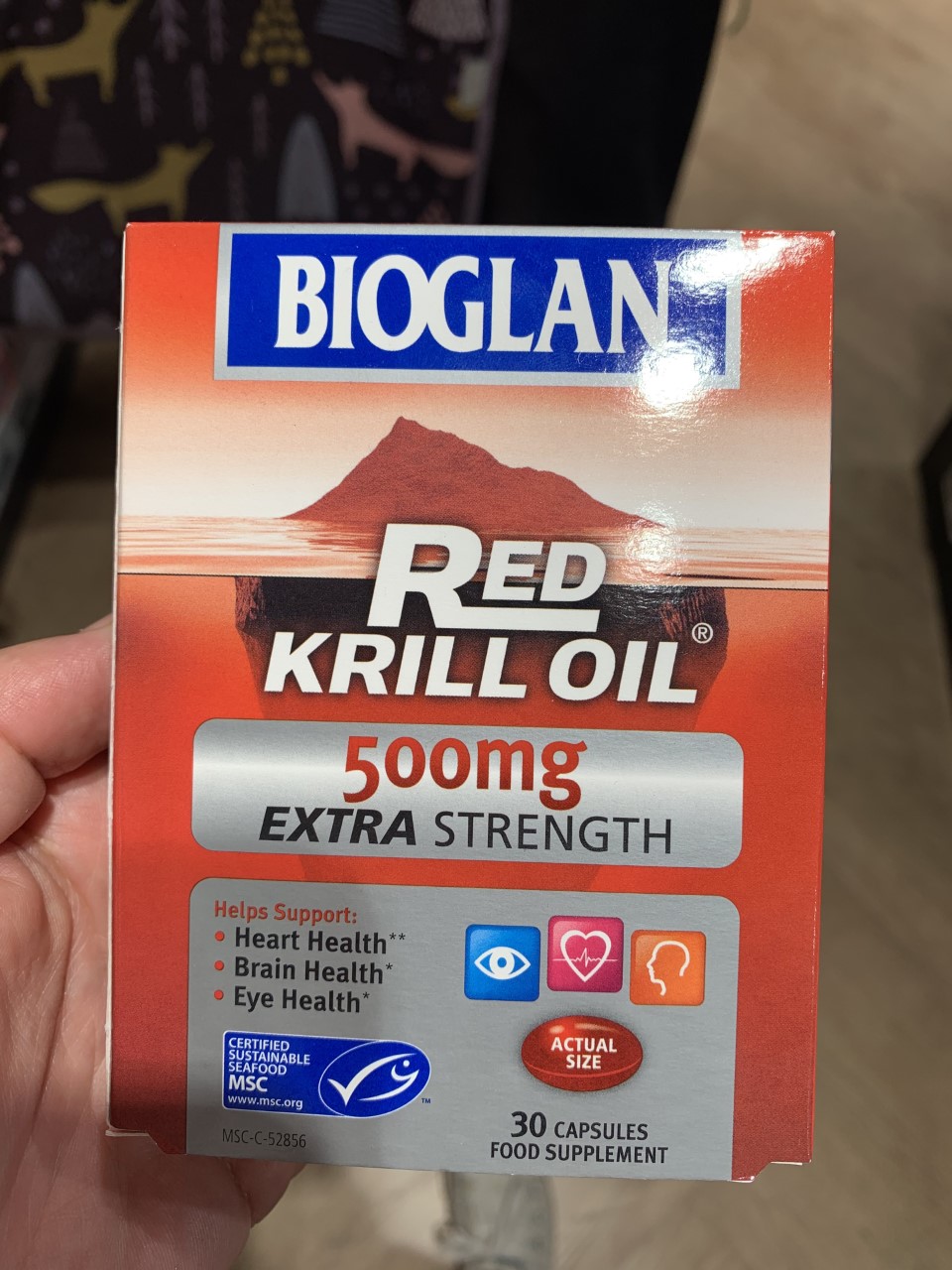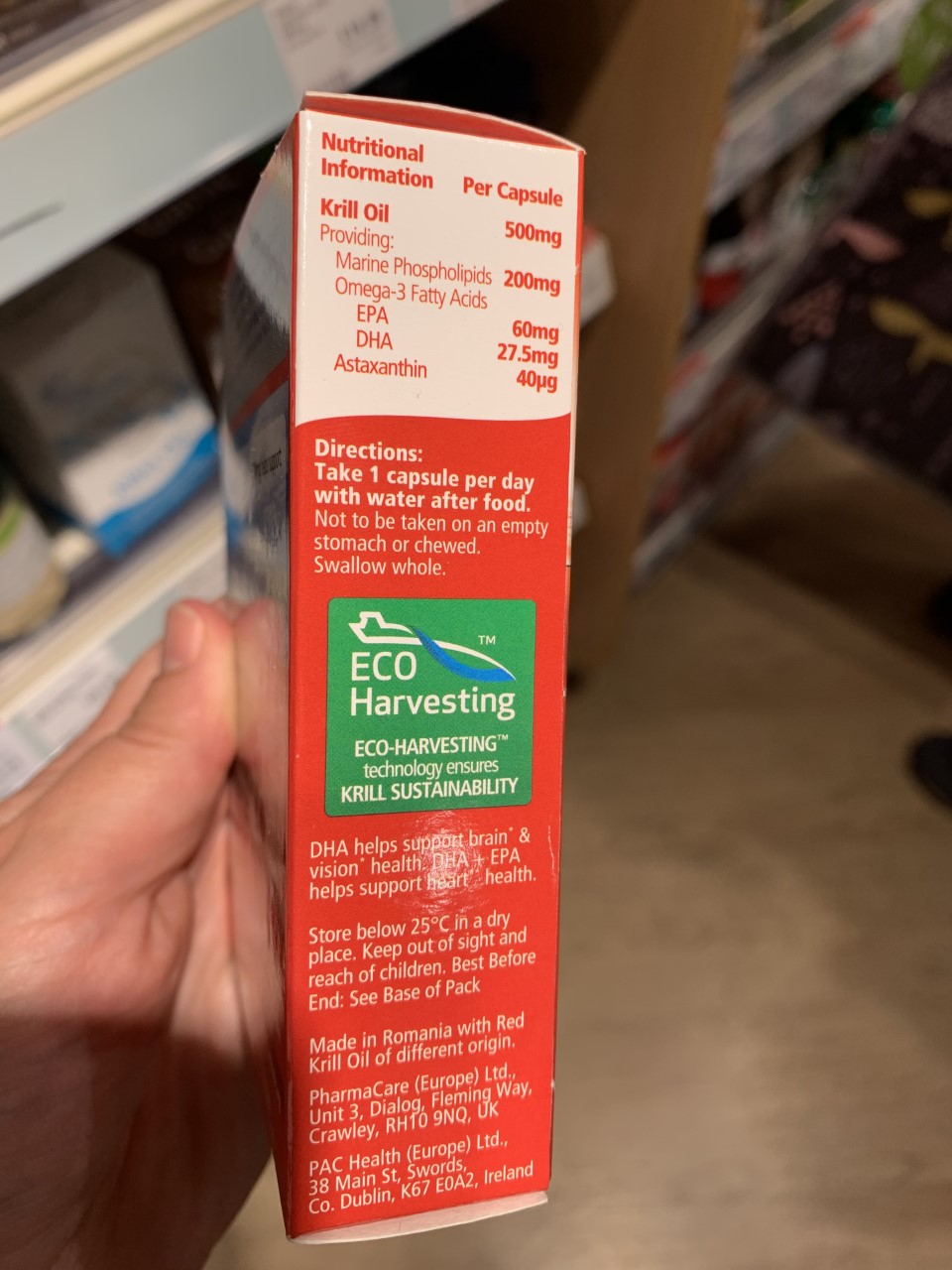
See What
Comes Out
In The Wash
Krill health supplements
Krill are a cornerstone species of the Antarctic food chain, and yet they’re plundered for health supplements. Aker BioMarine, the largest company in krill fishing, use self-created ecolabel like this ‘Eco Harvesting’ to greenwash its products and cover up the damaging effect of their fishing techniques and the wider industry.


These supplements are made from oil extracted from Antarctic krill, a tiny crustacean at the bottom of the Antarctic food chain. Antarctic krill is a cornerstone of the entire Antarctic ecosystem. Much of the marine life in the Southern Ocean is either a direct predator of krill or just one step removed, meaning that many animals – including whales, penguins, seals and squid – are dependent on krill as a crucial food source.
The small green label was created by the Norwegian company Aker Biomarine, responsible for 65% of the krill catch in 2021. It ‘certifies’ that the krill was caught using the Aker BioMarine ‘eco-harvesting method’, which is a fishing method developed and patented by Aker BioMarine that allows fish to be caught continuously without needing to retrieve the nets.


First, the continuous fishing method coined ‘eco-harvesting’ is itself problematic. Although the promotional video on the website informs the viewer that this method prevents bycatch, Aker BioMarine entangled four humpback whales, including three juveniles, during its last two fishing season.
Continuous fishing is also problematic because it allows to scoop up krill at an unprecedented rate. Since 2005, the total catch of Antarctic krill in the Subarea 48 has been constantly increasing. An analysis of the catch data shows that an intensity of krill fishing was slightly growing with use of traditional (conventional) trawls (by 46% compared 2008) whilst growing exponentially using the continuous fishing system (by 460% compared to 2008).
Second, the label reads ‘Eco-harvesting technology ensures krill sustainability’. This is a misleading claim. Whether or not krill is harvested via traditional or continuous system, krill fishing is not sustainable.
For more information see our report.
Greenwashed Certification